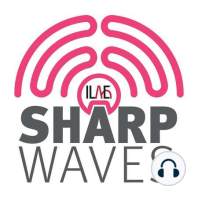19 min listen

Discovering new drugs for epilepsy: Dr. Karen Wilcox
Discovering new drugs for epilepsy: Dr. Karen Wilcox
ratings:
Length:
27 minutes
Released:
Mar 15, 2022
Format:
Podcast episode
Description
Anti-seizure medications are not a cure, and about 30% of people with epilepsy don't respond to them. How are new medications discovered, and what's on the horizon? Dr. Patricia Grandizoli Saletti interviews Dr. Karen Wilcox about her work with the Anticonvulsive Drug Development Program.Only about two-thirds of people with epilepsy have their seizures controlled by medication. The Anticonvulsive Drug Development (ADD) Program at the University of Utah is the contract site for the Epilepsy Therapy Screening Program (ETSP), a program run by the US National Institutes of Health that is dedicated to preclinical testing of potential new medications to stop seizures - and perhaps one day, to stop epilepsy from developing.Dr. Karen Wilcox directs the ADD Program, which over the years has evaluated the majority of the anti-seizure medications on the market today.The program uses a battery of assays and experiments to blind-test compounds, which are provided by pharmaceutical companies, academic labs, or medicinal chemists. The data is returned to the source lab, which can use it to pursue clinical testing if warranted. Identifying promising new anti-seizure medications relies on model systems that approximate epilepsy in human beings. Dr. Wilcox and colleagues' work on better pre-clinical models can help to identify more effective anti-seizure medications. For example, finding compounds effective against drug-resistant epilepsy depends on models that simulate drug-resistant epilepsy. Dr. Wilcox's program uses such a model and is working on developing others. And in a 2020 Epilepsia paper, her group described results from a study of subchronic administration of anti-seizure compounds in a rodent model of spontaneous seizures.This episode was reported by Dr. Patricia Grandizoli Saletti, and edited and produced by Nancy Volkers.Contact ILAE with feedback or episode ideas at podcast@ilae.orgSharp Waves content is meant for informational purposes only and not as medical or clinical advice. The International League Against Epilepsy is the world's preeminent association of health professionals and scientists, working toward a world where no person's life is limited by epilepsy. Visit us on Facebook, Twitter, and Instagram. Sharp Waves episodes are meant for informational purposes only, and not as clinical or medical advice.The International League Against Epilepsy is the world's preeminent association of health professionals and scientists, working toward a world where no person's life is limited by epilepsy. Visit us on Facebook, Twitter, and Instagram.
Released:
Mar 15, 2022
Format:
Podcast episode
Titles in the series (56)
"You are not your epilepsy": A conversation with Bright Bwalya by Sharp Waves: ILAE's epilepsy podcast